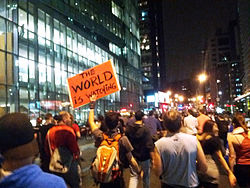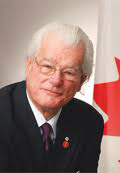
It was Sunday afternoon. Our writers’ conference was wrapping up. About 200 of this country’s most celebrated novelists, poets and non-fiction writers had gathered for the weekend at a Vancouver hotel to discuss writers’ issues. But before our annual general meeting of The Writers’ Union of Canada broke up, one of TWUC’s founding members, Andreas Schroeder, rose to read a motion put forward by B.C. members of the union.
“Whereas Bill 37-2012 (about to be passed in the B.C. Legislature) will make it an offence for anyone to disclose the presence of a reportable animal disease (in B.C.),” Schroeder said. “Be it resolved that the union opposes the muzzling of both the press and public discourse.”
Now discussing animal disease may not seem like an issue of great importance to Canada’s writing community. Except that the potential for disease to migrate from artificially raised salmon to the wild salmon population has caused much controversy in B.C. So much so, that the Liberal government of Christy Clark felt compelled to introduce Bill 37. The law will not only prevent fish scientists and journalists from reporting such disease outbreaks, it could also bring fines of up to $75,000 and imprisonment for up to two years, for speaking out or commenting in public.
“(Canada is) disdainful of governments that limit public information and freedom of expression in repressive regimes around the world,” Merilyn Simonds, the new chair of TWUC, said following the meeting. “And yet (within) Canada we see some of our governments pursuing similar policies.”
It’s called prohibiting free speech.
B.C.’s salmon fish farms are not the only Canadian battleground where governments seem oblivious to freedoms enshrined in this country’s constitution if not in 1867 (at Confederation) then certainly (with our Constitutional patriation) in 1982. Take as a second example, the recent implementation by the Jean Charest Liberal government in Quebec of Bill 78, which in so many words prevents the assembly of more than 50 people for the purpose of a demonstration.

The legislation was principally designed to stop the violence and destruction of property in the streets of Montreal. In fact, Bill 78’s subtitle is “the Act to enable students to receive instruction from the post-secondary institutions they attend.” But in anybody’s language, Bill 78 suddenly and unilaterally cancels freedom of assembly, protest or picketing. And those restrictions have far more sweeping implications than helping Quebec college and university students get to their classes. Even some post-secondary teachers, whose livelihoods are threatened by the pickets, have criticized the law.
“It’s a terrible act of mass repression,” said the president of the Canadian Association of University Teachers.
It’s called prohibiting free assembly.
Last, but not least, is the federal Conservatives’ Bill C-38, the so-called “omnibus bill.” This 425-page budget implementation legislation – that’s bigger than even the Romans who invented the word “omnibus” could ever have imagined – will apparently revise up to 70 existing federal laws. Among those areas the Harper government has lumped into this legislation are: changing the rules for environmental protection, reforming the Old Age Security system, reducing the federal civil service, altering the eligibility restrictions for employment insurance, changes to the administration of veterans’ programs, introducing new criteria for immigration, an end to the Fair Wages Act, not to mention measures to stimulate the economy. The Prime Minister defended his government’s all-inclusive approach.
“We have had a record amount of study of this particular piece of legislation,” Stephen Harper told the Huffington Post. “There has been major work before Parliament for three months.”

Rather than turn to other MPs for a rebuttal to the Prime Minister and the way he views Parliamentary debate, I thought I would quote a letter published in April 2011, by Senator Tommy Banks, who served in the upper chamber until his retirement last December. In his open letter, Sen. Banks (from Alberta) recounts the way Prime Minister Harper dealt with something called the Law Commission of Canada.
“It worked very well. It kept an eye on necessary reforms of the law, including election law. The Commission couldn’t actually change law; but it was very good at letting government and everybody else know when changes needed to be made and why. It was our legal Jiminy Cricket,” Sen. Banks wrote.
“The Commission was created by an Act of Parliament, and any government wanting to shut it down should have been up-front about it. It should have come to Parliament with a Bill to rescind the Law Commission of Canada. That’s what any of our 21 previous Prime Ministers would have done. But to Mr. Harper, Parliament is an inconvenience… Rather than proposing abolition of the Commission, they just eliminated all funding for it in the federal budget. Governments can do that. Proof – no Law Commission.”
It’s called prohibiting debate in an elected assembly.
The last time I checked, defending free speech, free assembly and free debate was what separated us from totalitarianism, despotism and anarchy.